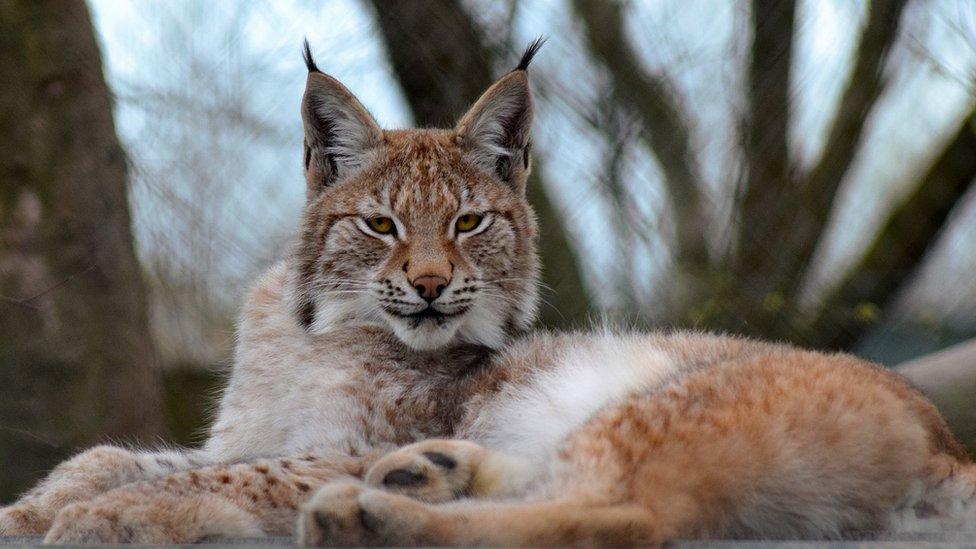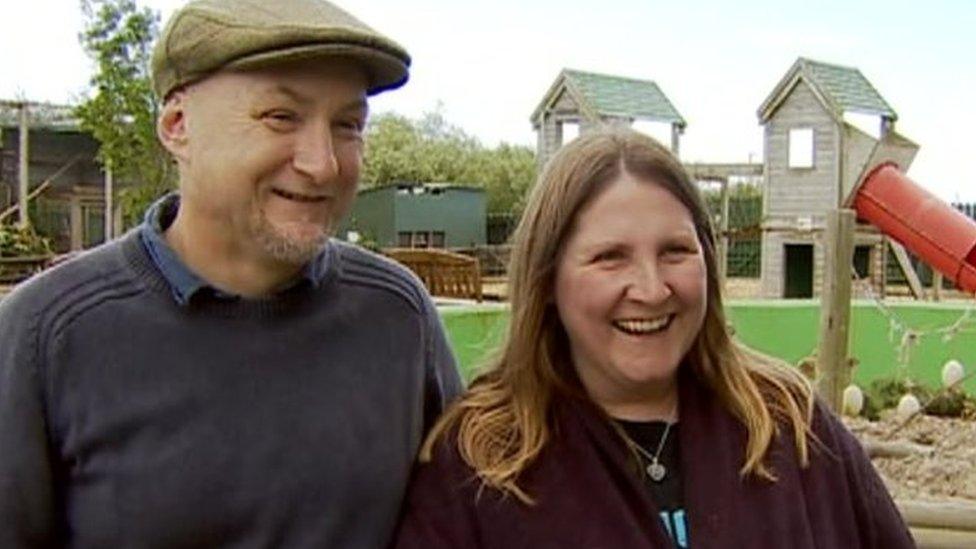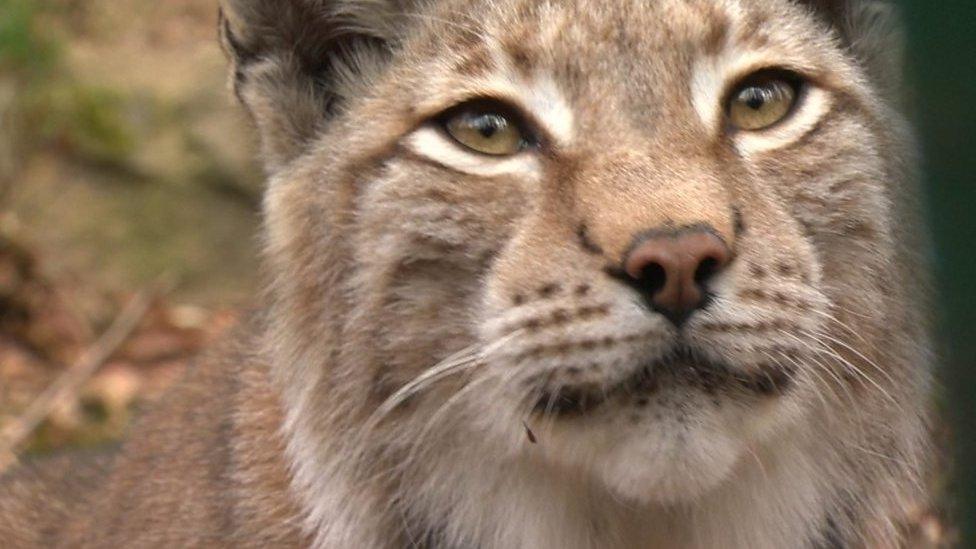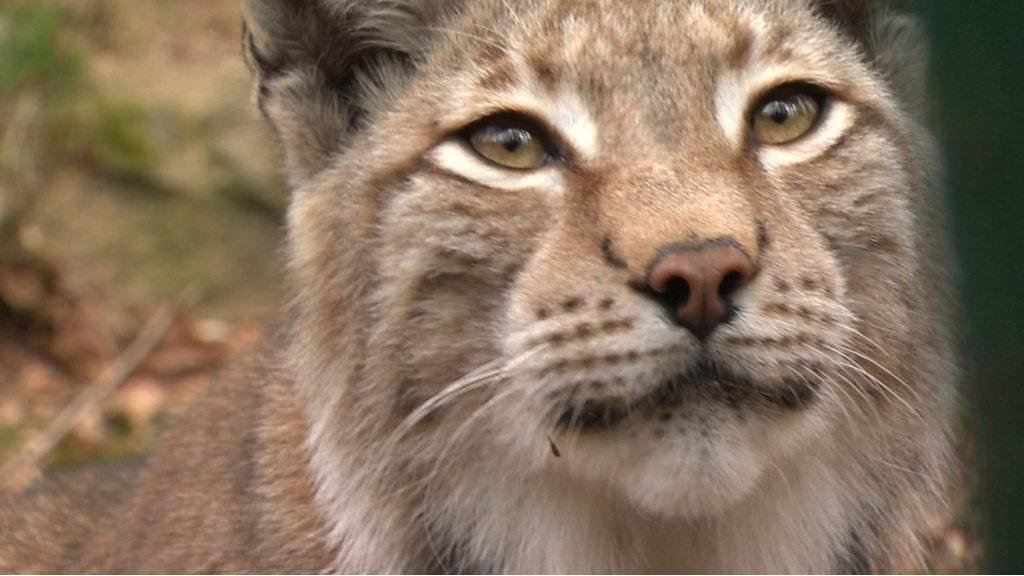Borth Animal Kingdom told to close dangerous animals enclosures
- Published

Lilleth the Eurasian lynx evaded traps put out to catch her after her escape in 2017
A zoo has been ordered to close the enclosures housing its most dangerous animals by a council.
Borth Wild Animal Kingdom was served with a notice because of inadequate firearms arrangements.
Ceredigion council said one member of a firearms team must be on duty every day in case an animal escapes.
A council spokesman said the zoo had failed to maintain licence conditions. A zoo official said the situation would be resolved "in the next few days".
Procedures were currently being put in place, she added.
In late 2017, Lilleth the Eurasian lynx escaped from the zoo before being found at a nearby caravan site where she was shot dead by a marksman.
Nilly also died in what owners called a handling error.
Following these incidents, the zoo was initially banned from keeping dangerous animals.
But in July 2018, it was handed a reprieve and given six months to hire a qualified, competent manager.

Dean and Tracy Tweedy bought the zoo for £625,000 in 2016
In February 2019, owners and council officials said two "competent people" had been employed and a start date was being finalised.
At the time, category one animals at Borth zoo included two lions, three lynx, two wolfdogs, two capuchin monkeys, one grivet monkey, two patas monkeys and a python.
However, the council said it had now confirmed the zoo had failed to maintain its licence conditions.
The decision can be appealed before magistrates within 28 days.
Local authority officials have written to the zoo's operators asking them to close it to the public on a voluntary basis until the matter is heard.
Public safety
Gareth Lloyd, cabinet member for public protection services, said: "I know that the direction was served reluctantly.
"Council staff have worked closely with the zoo to help them comply with the conditions of their licence.
"The safety of the public and the welfare of animals have always been our priorities."
He said council officials were working on contingency plans to re-home the animals if the decision was not successfully appealed.
Related topics
- Published3 February 2019

- Published27 July 2018

- Published13 November 2017

- Published10 November 2017

- Published29 October 2017
